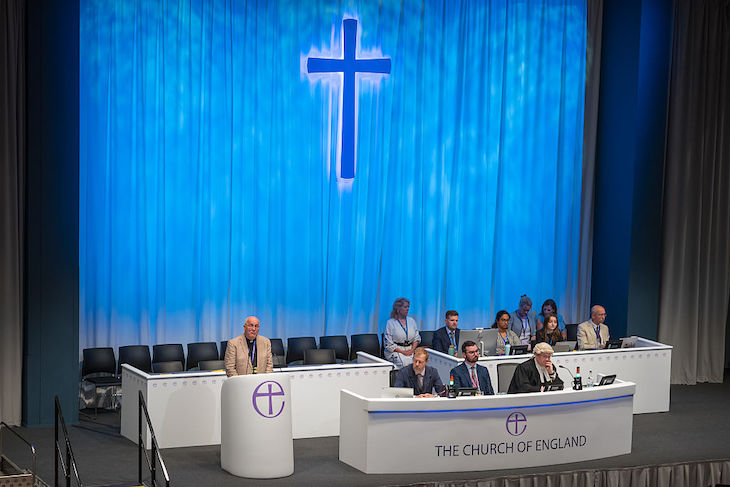To much fanfare, the Church of England this week instituted a plan, funded to the tune of some £150 million and overseen by a well-respected City law firm, to compensate the victims of abuse carried out by church officials. So far, so good. But when we are talking big money like this, eligibility needs to be carefully circumscribed, with tough boundaries set. Unfortunately, one doubts whether the new Abuse Redress Measure, which set up the scheme, does this. However well-intended, it actually risks a worryingly unpredictable and at times arbitrary use of church funds.
If you don’t like this, feel free to leave: but you shouldn’t be able to sue
An obvious problem is its sheer width, which strays beyond the clearly deserving case of people physically or sexually assaulted by church officers in the course of their duties (and whom the law already requires the church to compensate). It sweeps up not only physical but so-called ’emotional abuse’. This is difficult terrain. Religion is in the business of harnessing emotion and channelling it, often in a disconcerting way, in the right direction. The suggestion that even potentially this could be a serious wrong inviting a claim for damages misses this point, applies secular standards where they don’t belong, and forgets that you don’t go to church to be affirmed but to be made uncomfortable about not being better. If you don’t like this, feel free to leave: but you shouldn’t be able to sue.
So, too, with ‘spiritual abuse’, which is also included. This is doubly disconcerting, since the CofE actually goes so far as to say officially that this includes: ‘A consistent pattern of controlling behaviour suggesting that questioning or challenge is an inability to be obedient to God and a reflection of a problematic personal faith,’ not to mention ‘use of scripture to control behaviour consistently’. Wow. One might have thought the very point of a church was to make clear unequivocally the need for submission to the will of God, the need for constant obedience to it, and the lack of a right to opt out. If the powers that be think this is not the case, Heaven help the church.
For all the General Synod’s touting of the need for the church to accept corporate culpability for abuse carried out in its name, the scheme also appears to go beyond reparation for victims of direct malpractice by church officers. An interesting feature of the scandal that brought down the previous Archbishop of Canterbury was the tenuousness of the link between what he did and any kind of official church activity. Justin Welby’s sin was essentially that he failed to chase up serial abuser and previous acquaintance John Smyth, even though the latter had decamped abroad years earlier. Was this blatant ecclesiastical wrongdoing, crying out for expiation? No matter, said Synod: this, too, must be gathered in. An amendment was carried to assure a share in the fund for anyone alleging abuse by any church office-holder who complained that a church official had later failed to take steps to bring to justice the abuser concerned.
Indeed, on close inspection this measure looks less like a piece of necessary ecclesiastical housekeeping than an undignified exercise in ostentatious guilt expiation with money as the medium. If abuse is seen as particularly egregious or outrageous, the measure says, the more guilty the church and the more it must pay. Even if a victim dies after bringing a claim, thus putting himself beyond any earthly solace, there can be no escape: the show must go on.
What if a claimant has already received an interim payout from the church? A further amendment passed by Synod says that this must not be deducted: the church must, in the words of the Bishop of Birkenhead, reflect in cash the ‘ridiculous generosity’ of God. And so on.
This cannot be healthy. It’s all very well for well-meaning churchpeople to talk of generosity, even ‘ridiculous’ generosity. But they might also bear in mind an inconvenient fact: every penny generously spent here is a penny less for other purposes. As any personal injury lawyer will tell you, no-one actually knows how far big money can actually make good a victim’s anguish: on the other hand, it is grimly certain what will happen if many millions of pounds otherwise destined to pay priests, look after worshippers’ souls and tend to the spiritual life of the nation have to be diverted elsewhere. The well-meaning synodists who voted in this scheme in the name of generosity and the supposed expiation of guilt might perhaps have also considered Paul’s words to the Colossians: ‘set your mind on things above, not on earthly things.’ It might at the very least have concentrated their minds.







Comments